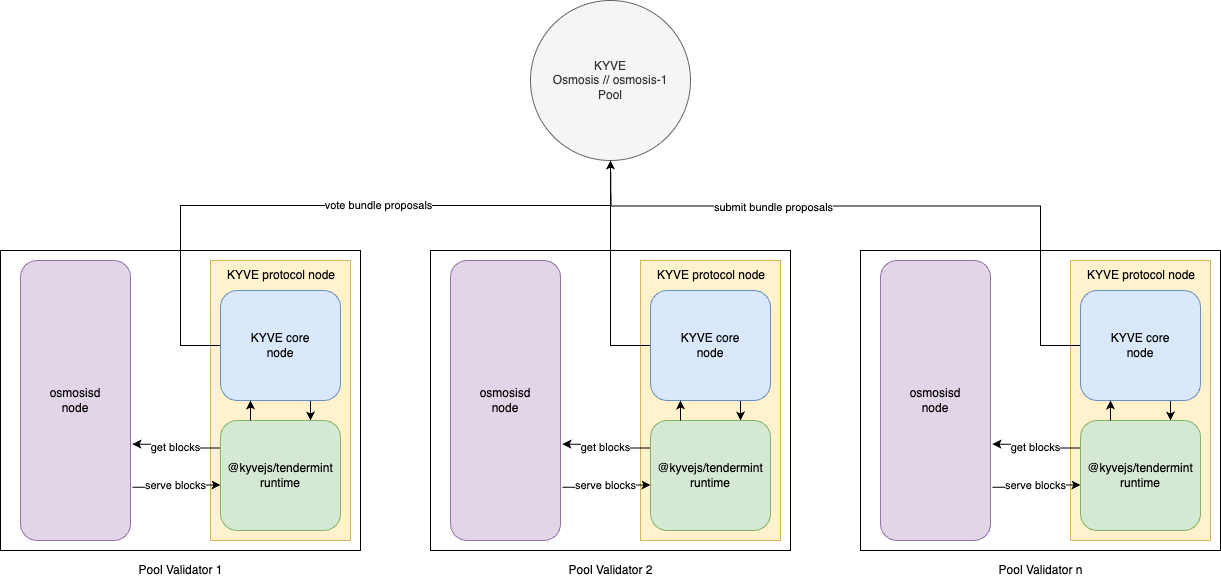Introduction
This data pool validates and archives all blocks and block results from Osmosis and makes them permanently available with Arweave and Bundlr.
INFO: The Osmosis pool is currently not live on Mainnet, only on Kaon and Korellia.
Overview
- Runtime: @kyvejs/tendermint
- Data Source: Self hosted Osmosis full node (osmosis-1)
- Data: Blocks from Genesis ongoing
- Storage Provider: Bundlr
- Networks
- Min Hardware Requirements
- 4 or more physical CPU cores
- 32 GB RAM
- 1 TB DISK
- 50mbps network bandwidth
General Setup
If you want to participate in the Osmosis pool you will have to run an Osmosis Full node which will act as the data source for the KYVE protocol validator.
This ensures that the data which is getting proposed and validated actually comes from decentralized sources. Furthermore, since the Osmosis blockconsensus validator only serves valid blocks we further increase the validation of this data. With that setup a user who wants to join this pool first has to sync his Osmosis node to the current height the pool has already archived the blocks and then start the actual KYVE protocol validator.
This architecture diagram summarizes the setup of the Osmosis integration on KYVE:

Here the tendermint runtime is responsible for communicating with the tendermint application (purple) - in this case osmosisd, and forwarding the data to the KYVE core protocol. The KYVE core then handles the communication with the pool. This entire process (yellow) is the KYVE protocol validator. The resulting data are the blocks from the tendermint application - validated and permanently stored on a storage provider like Arweave.
Goal
The goal of this pool is to validate and archive all blocks and block results from Osmosis permanently and decentralized. With this data we want to make it possible for other nodes to block sync the data from KYVE, making expensive archival nodes on Osmosis obsolete in the long run. More information on how to perform block sync with KYVE visit the documention about KSYNC here. In addition, the validated archived block results enable a number of further use cases for data analysis.